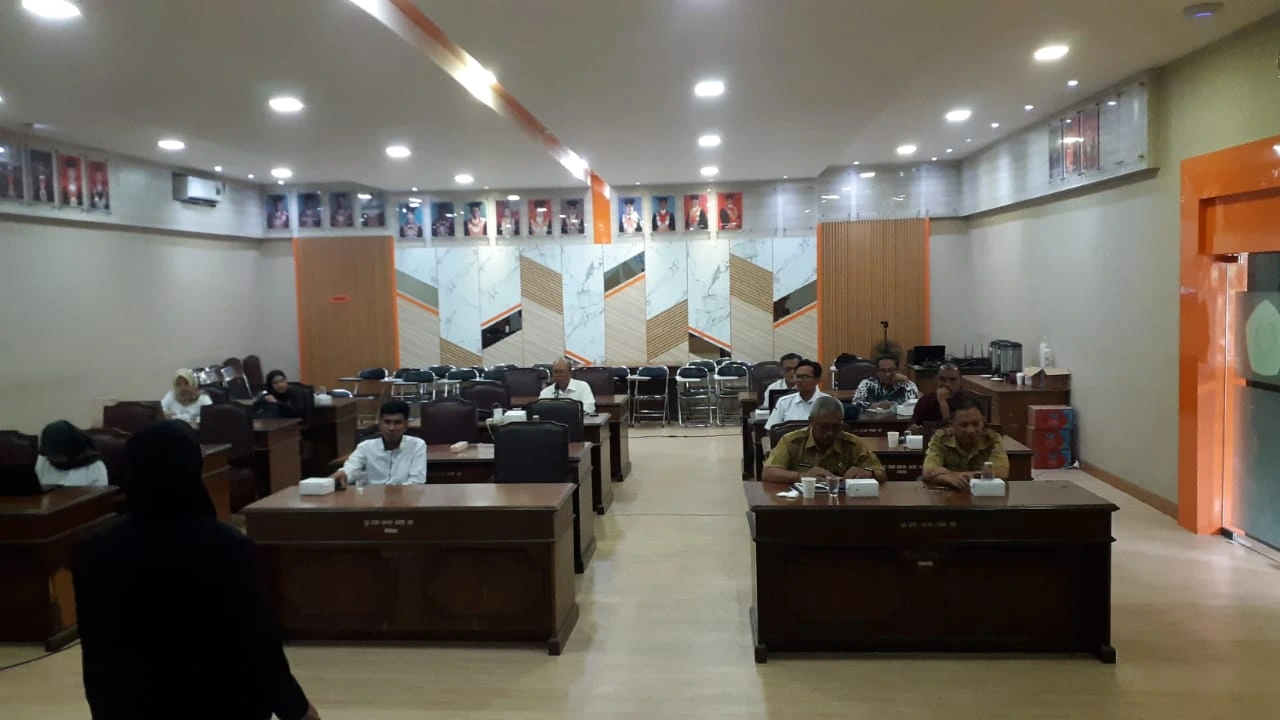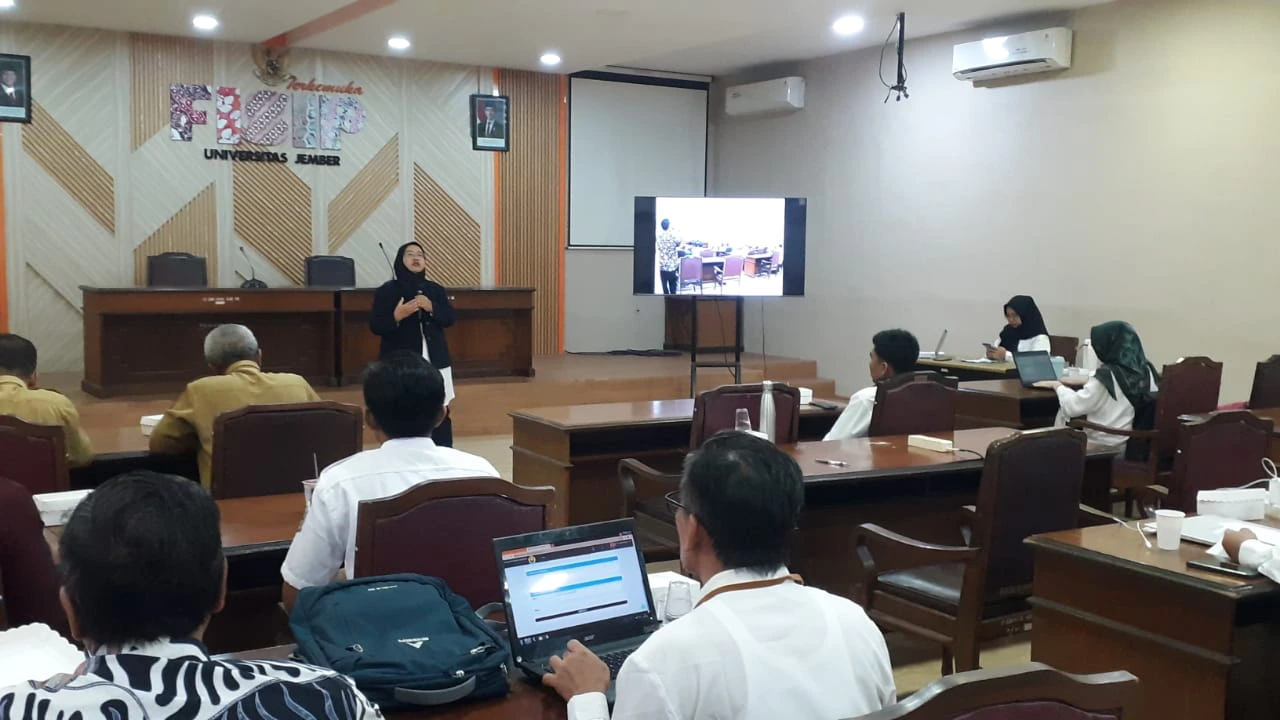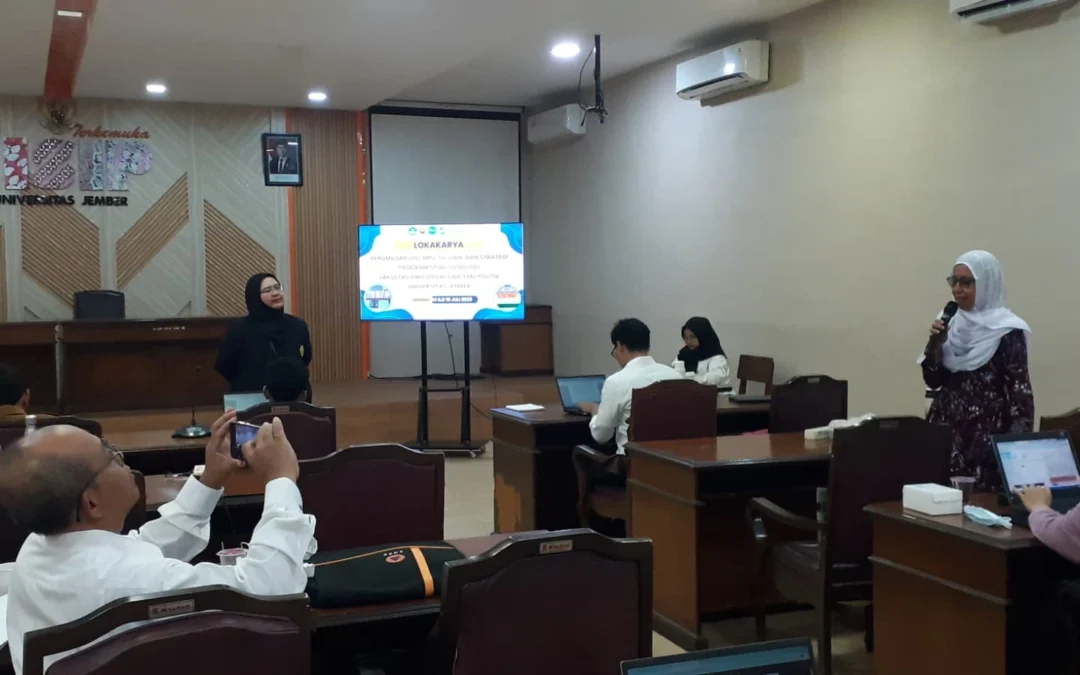The Faculty of Social and Political Sciences (FISIP) at Jember University (UNEJ) has set its strategic direction for the next five years, launching a comprehensive Vision, Mission, Goals, and Strategic Objectives for the 2025–2029 period. This forward-looking plan emerged from a vision and mission formulation workshop held by the Sociology Study Program within FISIP UNEJ.
The workshop, which took place from July 14-15, 2025, in the FISIP Meeting Room, was officially opened by the Dean of FISIP UNEJ, Suyani Indriastuti, S.Sos., M.Si., Ph.D. Dean Suyani emphasized the necessity of updating the Sociology Study Program’s vision and mission, stating, “Updating the Sociology Study Program’s Vision and Mission is a must due to changes in Jember University’s Vision and Mission. Therefore, the Study Program’s Vision and Mission are derivatives of the University’s Vision and Mission.”
FISIP’s newly articulated vision, “To become a leading, integrity-driven, and internationally recognized faculty in social and political innovation to support sustainable agro-industry,” demonstrates its commitment to playing a unique and relevant role in addressing contemporary challenges, both locally and globally.
This ambitious vision is translated into three main missions that serve as the pillars of the faculty’s progress:
-
First, to deliver nationally-characterized education with international repute by prioritizing the concept of “glocalization,” a blend of global innovation and local wisdom.
-
Second, to specifically generate innovations in social and political sciences that support the sustainable agro-industry sector through learning, research, and community service activities.
-
Third, to commit to developing transparent and accountable faculty governance by optimizing information technology.
From this vision and mission, FISIP has established four primary goals: The faculty aims to produce graduates who are not only competent and adaptive but also possess integrity and intellectual prowess. Furthermore, FISIP is determined to generate excellent, environmentally friendly social-political scientific works that benefit society. Other goals include fostering an accountable work culture based on an efficient quality management system and achieving national and international recognition through academic contributions and strategic partnerships.
To achieve these goals, six measurable strategic objectives have been formulated. These objectives include developing scientific talent, creating innovative works with an agro-industrial and local wisdom perspective, and empowering the community. Internally, FISIP will focus on realizing an accountable quality management system with an effective work culture based on exemplary leadership, mutual cooperation, and appreciation. Strengthening collaboration with government agencies, the Business and Industrial World (DUDI), and research institutions at national and international levels is also a priority objective to expand the faculty’s impact and reach.



